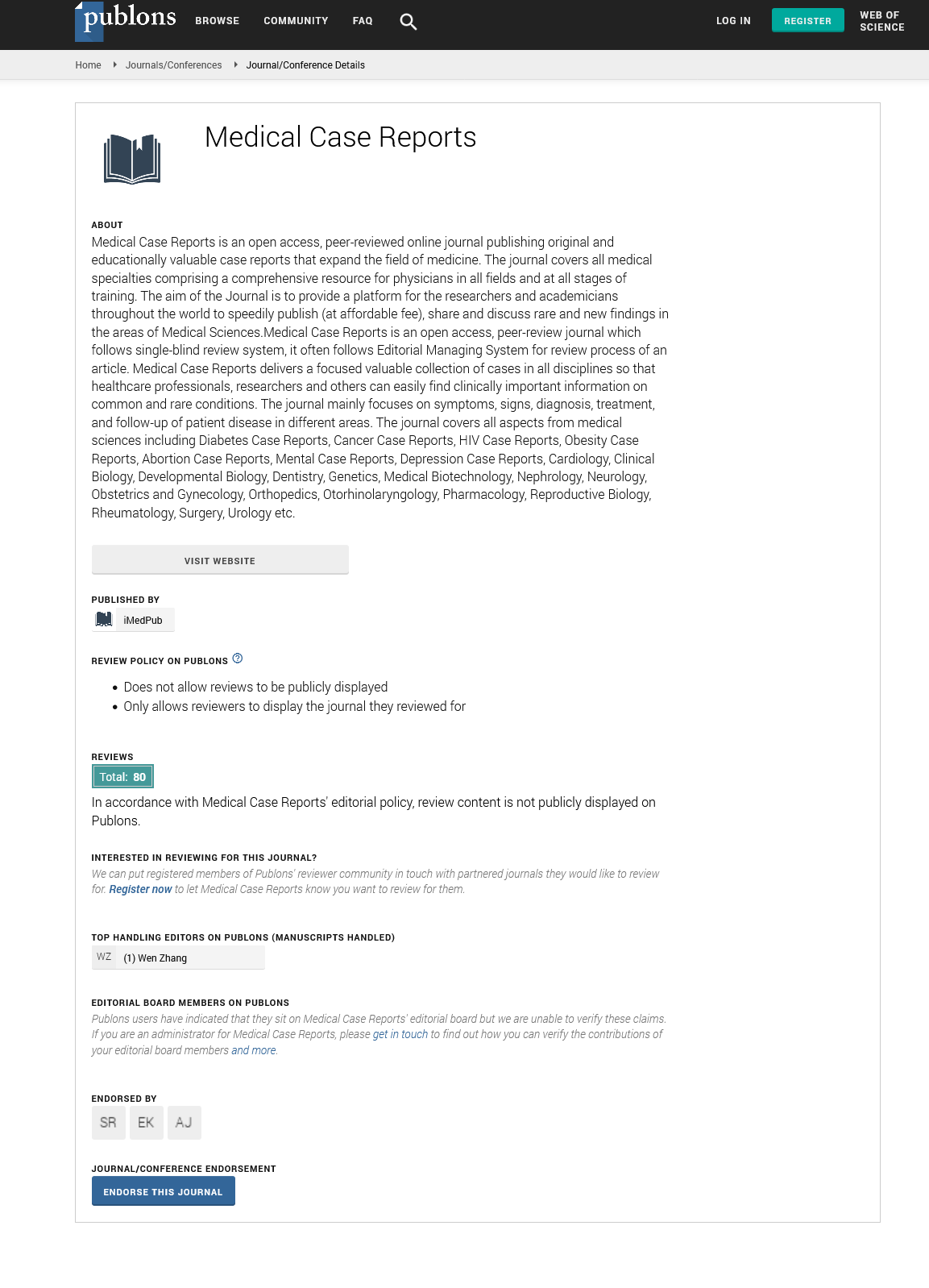ISSN : 2471-8041
Medical Case Reports
Dengue fever and SIADH: a case report
8th Edition of International Conference on Clinical and Medical Case Reports
May 28-29, 2018 London, UK
Anthony M Valeri
Columbia University Medical Center, USA
Posters & Accepted Abstracts: Med Case Rep
DOI: 10.21767/2471-8041-C1-003
Abstract
Syndrome of inappropriate antidiuretic hormone secretion (SIADH) has been described in a variety of viral infections. It has not been previously reported in cases of dengue fever. Herein, we report a case of SIADH in the setting of acute dengue fever in a patient returning from an endemic area. A 65 years old Dominican woman with PMH of hypothyroidism (on replacement therapy), OMS/Dementia (on memantine), gastroesophageal reflux disease (GERD) (on esomeprazole - a PPI), hyperlipidemia (on atorvastatin) and osteopenia (on ibandronate) was admitted after returning from vacation in the Dominican Republic with fever and diffuse abdominal pain. She tested positive for dengue fever. On presentation, she had serum sodium of 135 with normal renal function. Because of her N/V, she was given IV hydration with 0.9% normal saline (NS). Her serum sodium fell over the next 24 hours to 121 (serum osmolality 242) and then by 48 hours to 113. Her urine osmolality was 609. Adrenal and thyroid function tests were within normal limits. She had no known cardiac or liver disease. She was given a presumptive diagnosis of SAIDH and was treated with 2% saline which raised her serum sodium to 118 over the next 24 hours and then to 126 by 48 hours. No secondary cause of SIADH was found. She was also placed on fluid restriction and her serum sodium remained stable in the 125-128 range over the next five days (urine osmolality 614 at that time) and then gradually rose to 133-134 over the subsequent remaining five days of her hospitalization.
Biography
E-mail: amv3@cumc.columbia.edu
Google Scholar citation report
Citations : 241
Medical Case Reports received 241 citations as per Google Scholar report
Medical Case Reports peer review process verified at publons
Abstracted/Indexed in
- Google Scholar
- China National Knowledge Infrastructure (CNKI)
- Cosmos IF
- Directory of Research Journal Indexing (DRJI)
- WorldCat
- Publons
- Secret Search Engine Labs
- Euro Pub
Open Access Journals
- Aquaculture & Veterinary Science
- Chemistry & Chemical Sciences
- Clinical Sciences
- Engineering
- General Science
- Genetics & Molecular Biology
- Health Care & Nursing
- Immunology & Microbiology
- Materials Science
- Mathematics & Physics
- Medical Sciences
- Neurology & Psychiatry
- Oncology & Cancer Science
- Pharmaceutical Sciences
